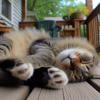Myths and Superstitions
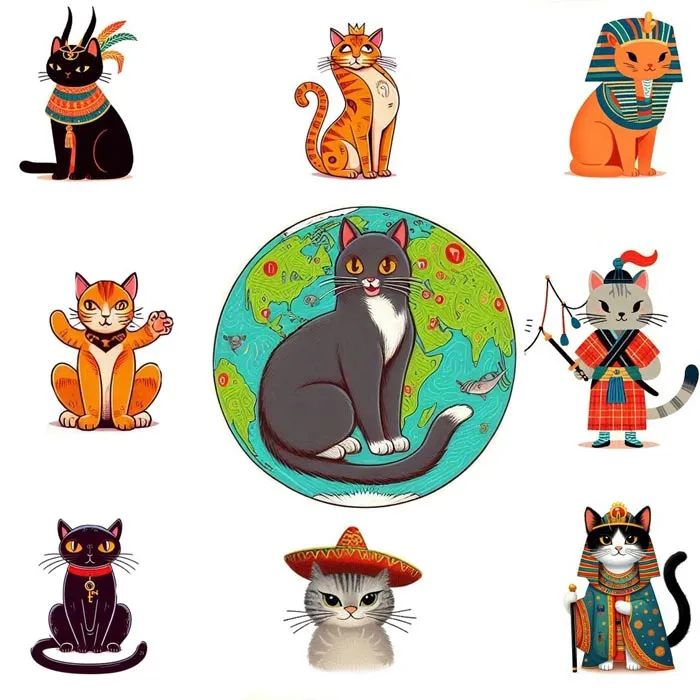
Don't forget to leave your warm and funny comments at the bottom of the page!
Myths and Superstitions About Cats Around the World
Cats have inspired a wide range of myths and superstitions across different cultures. Here are some of the most notable ones from around the world.
These diverse beliefs highlight how cats' behaviors and appearances have been interpreted through cultural lenses, often reflecting deeper fears, hopes, or spiritual practices.
These are just a few examples of how cats are seen through the lens of superstition across the globe.
Their mysterious behavior, silent movements, and independent nature have made them figures of both reverence and fear throughout history.
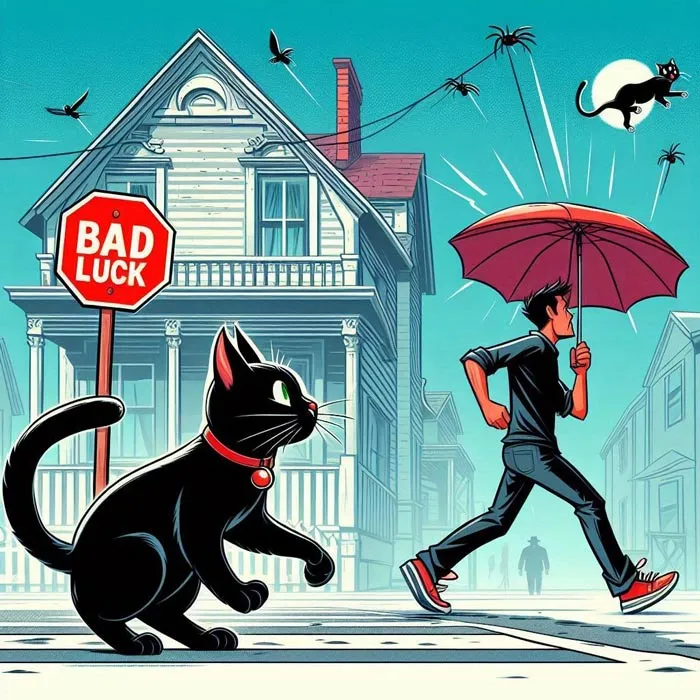
Black Cats Bring Bad Luck (Western Superstition)
In many Western cultures, particularly in the U.S. and Europe, black cats are often associated with bad luck, especially if they cross your path.
This superstition is believed to have originated during the Middle Ages, when black cats were thought to be witches' familiars or shape-shifted witches themselves.
The superstition that black cats bring bad luck is deeply rooted in history and cultural fears of the unknown. For those who appreciate their beauty and mystique, black cats continue to symbolize resilience, mystery, and even luck in certain contexts.
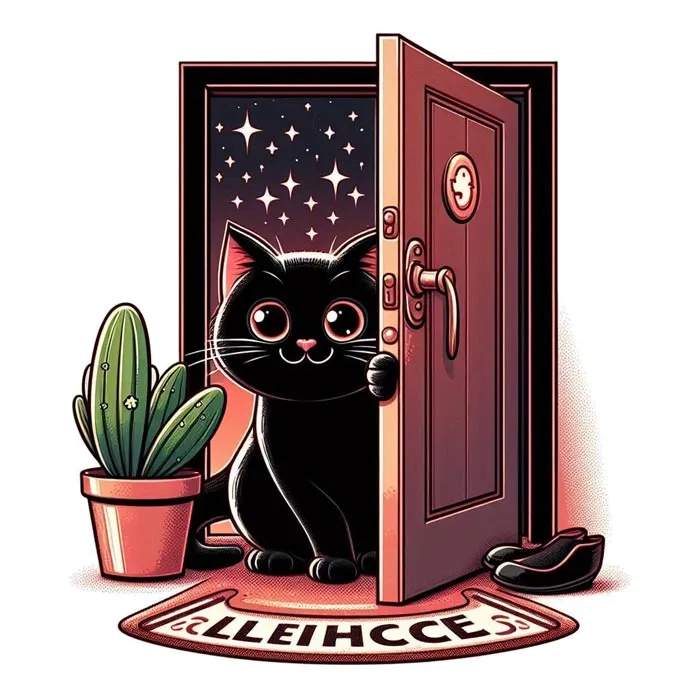
Black Cats Bring Good Luck (British and Scottish Superstition)
In contrast to the bad luck superstition, in parts of the UK and Scotland, black cats are believed to bring good fortune.
In Scottish tradition, a black cat appearing on a doorstep was considered an omen of prosperity. Wealthy Scottish households often welcomed black cats as charms to secure their fortune.
In parts of England, especially in seafaring communities, black cats were seen as protectors and bringers of luck.
In some British wedding customs, giving a black cat as a gift to the bride was believed to bring her happiness and a harmonious marriage.
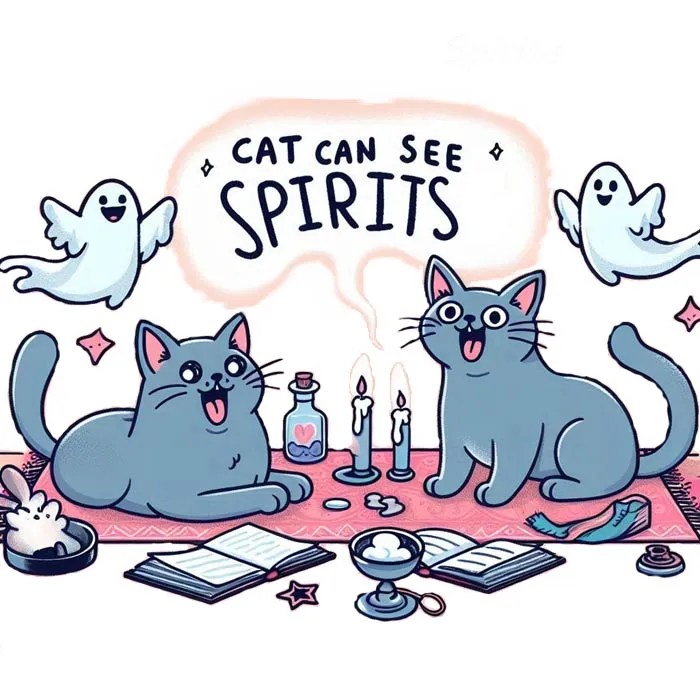
Cats Can See Spirits (Various Cultures)
Many cultures believe that cats possess the ability to see spirits or otherworldly beings.
For instance, in Egypt, cats were revered for their mysterious qualities, and people believed they could protect homes from evil spirits.
Japanese folklore often portrays cats as spiritual creatures. For example, the bakeneko (supernatural cat) and nekomata (fork-tailed cat) are believed to possess mystical powers, including the ability to communicate with or see spirits.
In medieval Europe, black cats, in particular, were believed to be able to detect ghosts or serve as witches' familiars, assisting in communicating with the supernatural.
In Slavic cultures, cats are thought to guard the home from evil spirits.
In Islamic tradition, cats are considered clean and noble creatures.
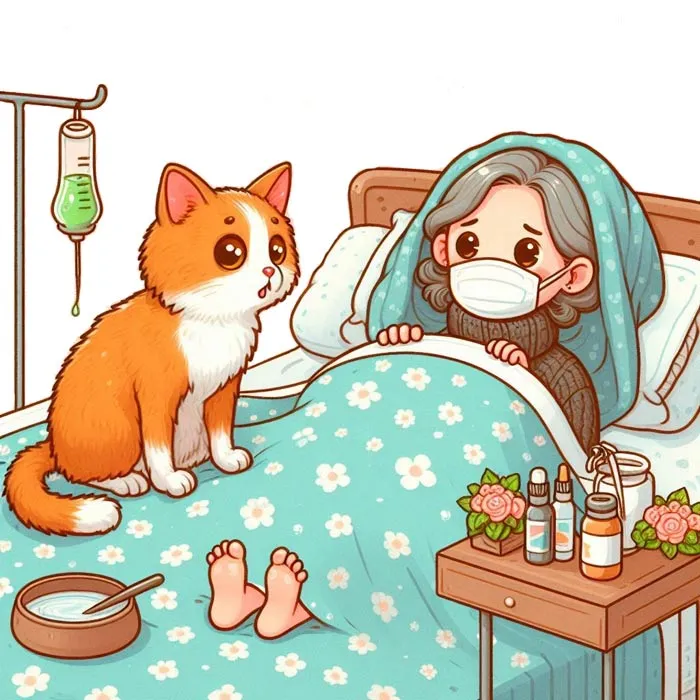
A Cat Sitting on a Sick Person's Bed Will Heal Them (European Folklore)
In some European folk traditions, it was believed that if a cat sat on the bed of a sick person, it would help them recover. Cats were thought to possess healing energy, and their purring was believed to be therapeutic.
This superstition reflects the deep connection between humans and animals, as well as the perception of cats as having special energies or powers that could influence health and well-being.
Modern Interpretations: The idea of animals, particularly cats, as therapeutic companions has gained scientific backing. Animal-assisted therapy is widely recognized for its benefits in reducing stress, anxiety, and depression, and cats are often praised for their calming influence.
Pet your cat to reduce stress
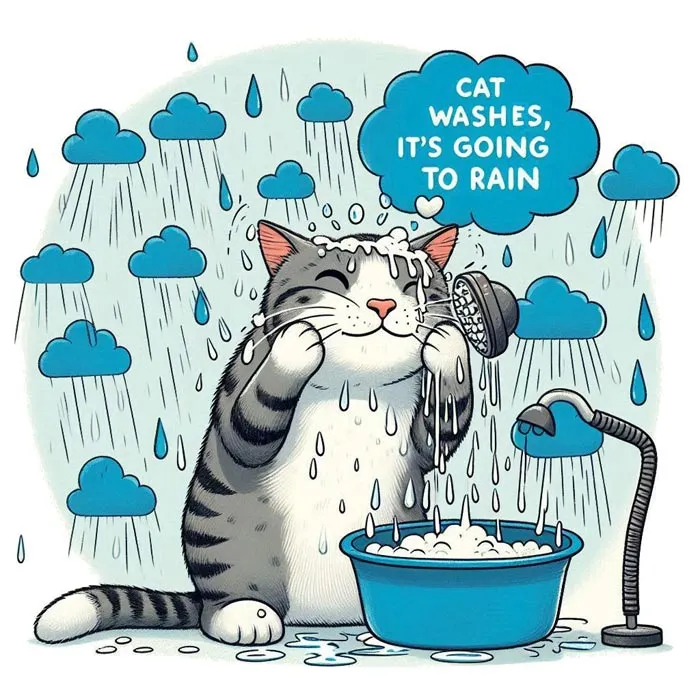
Cats and Rain (Japanese Superstition)
In Japan, there is a superstition that says if a cat washes its face, it is going to rain. This belief likely stems from the observation of cats licking their paws and wiping their faces, which may have coincided with rainy weather.
The superstition implies that cats, due to their sensitive nature and connection to the environment, can detect subtle changes in atmospheric pressure or humidity that humans might miss.
While the superstition ties the act to rain, there may be a practical explanation for why cats seem to groom themselves more in humid weather. High humidity can cause discomfort in cats, prompting them to clean their fur more frequently. Grooming helps regulate their body temperature and remove excess moisture, particularly around their sensitive ears and face.
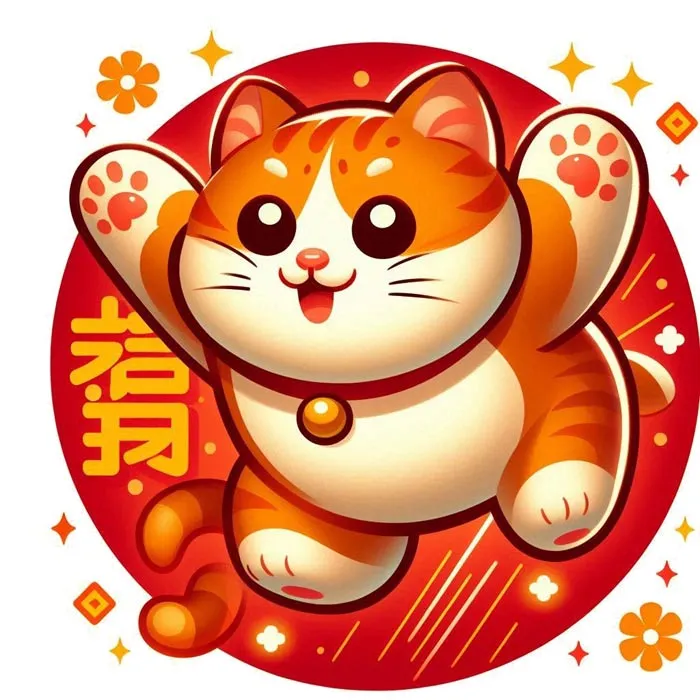
The Cat's Jump to the Left or Right (Chinese Superstition)
In Chinese folklore, it's believed that a cat's choice to jump either to the left or right can have significance. If a cat jumps to the left, it is considered unlucky, while a jump to the right is seen as a sign of good fortune.
If a cat jumps to the left, it is traditionally considered unlucky. This direction is often associated with negativity, misfortune, or obstacles in one's path. It could suggest that the person witnessing the jump might encounter challenges or need to be cautious in their upcoming decisions.
If the cat jumps to the right, it is viewed as a positive sign, symbolizing good fortune, prosperity, or the resolution of pending issues. A rightward jump might be interpreted as an encouragement to proceed with plans or ventures with confidence, as the way forward is clear and blessed.
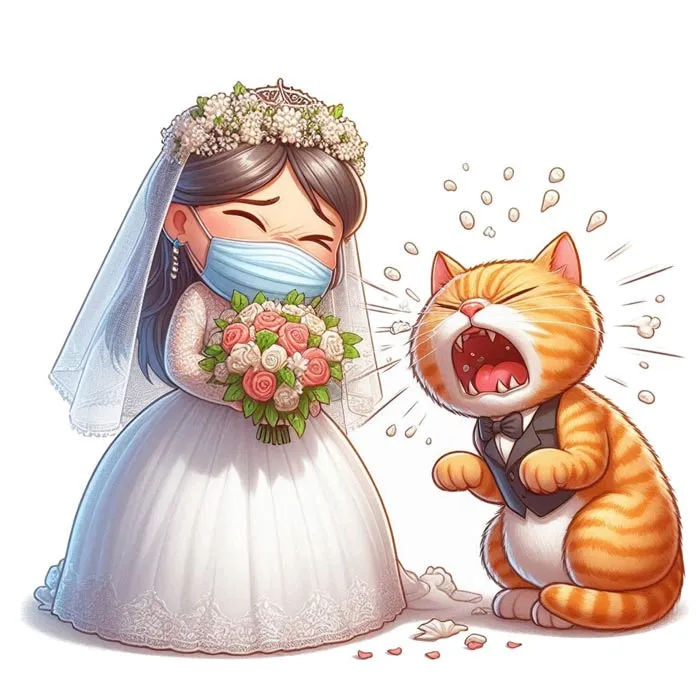
Cats and Wedding Luck (Celtic Tradition)
In Celtic folklore, if a cat sneezes near a bride on her wedding day, it's considered a sign of good fortune and a happy marriage.
This superstition likely stems from the general reverence for cats as magical protectors and symbols of prosperity in Celtic traditions.
This superstition may also be connected to the practical and symbolic importance of cats in ancient Celtic households. Cats were seen as guardians of the home, keeping pests away and providing a sense of security.

